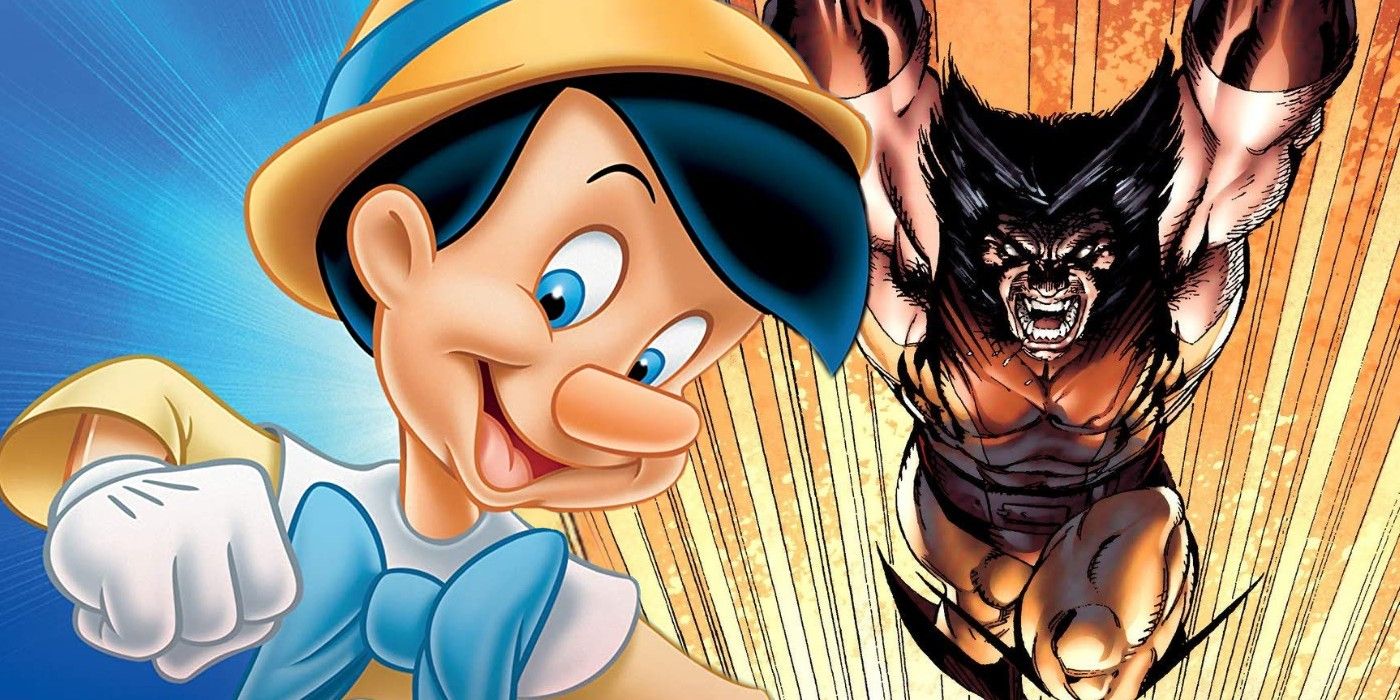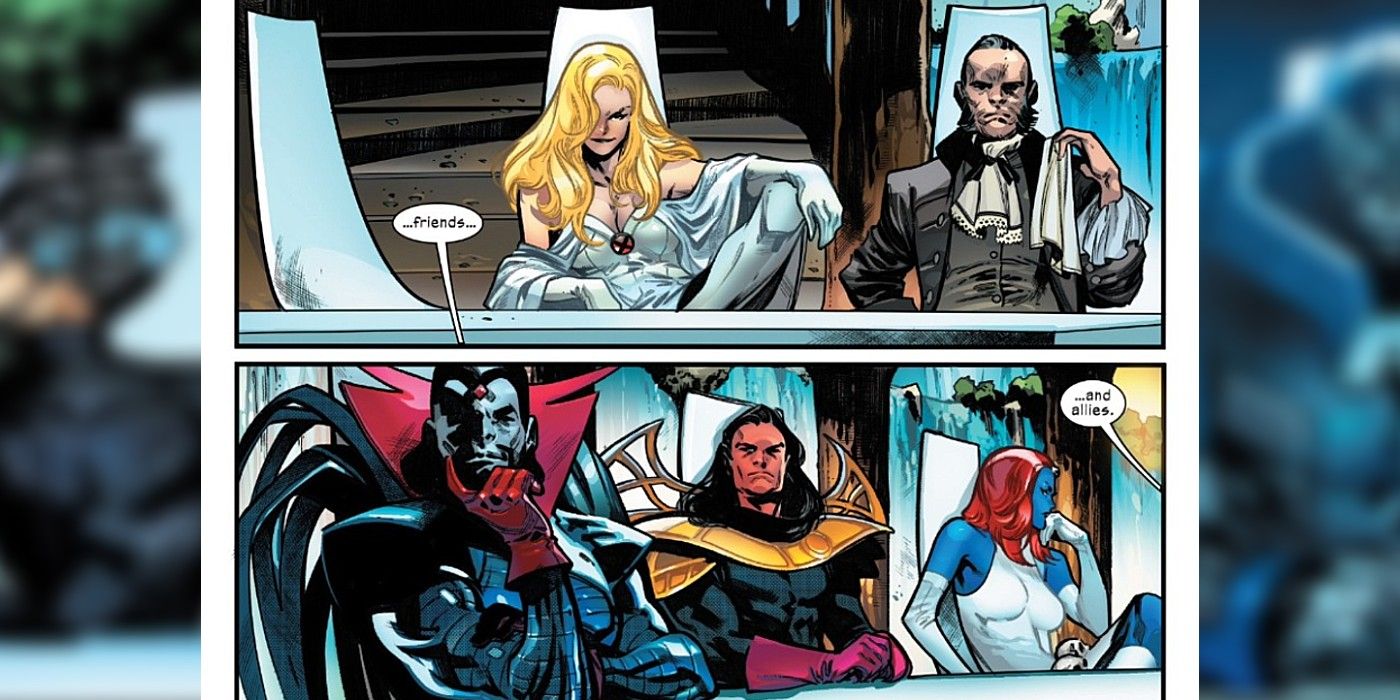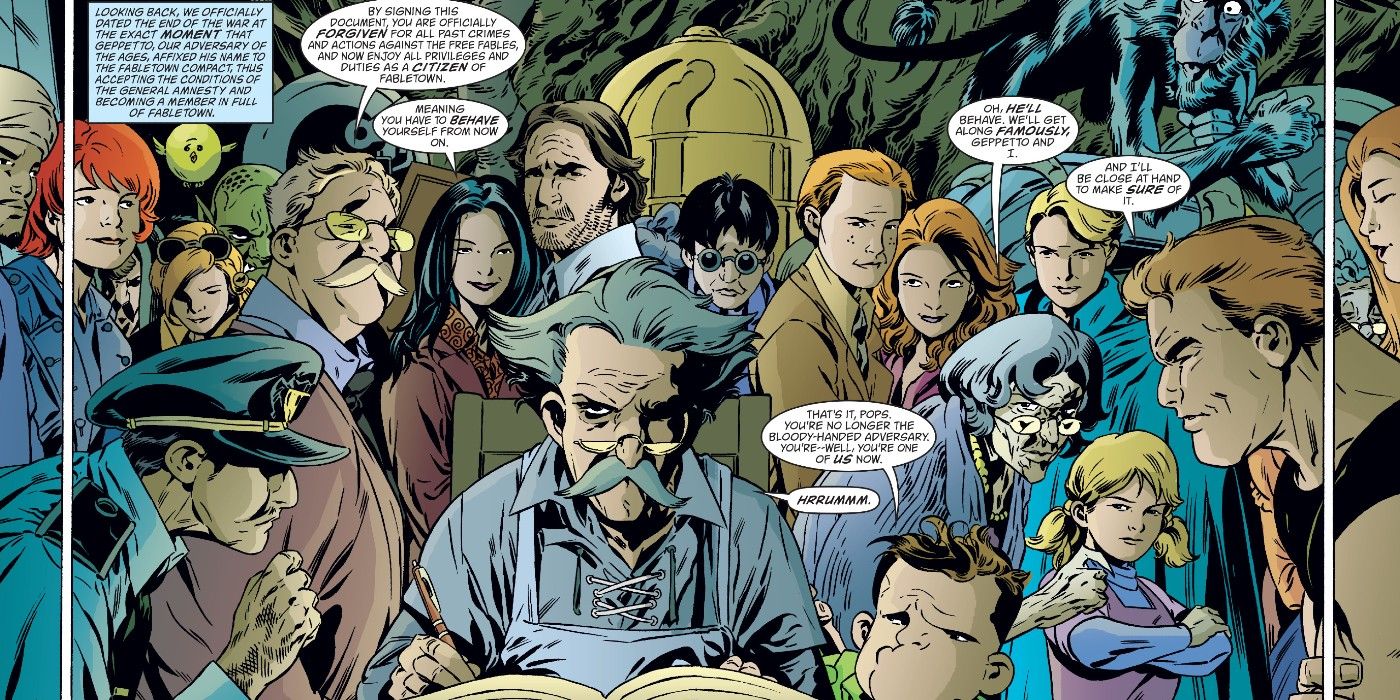
Marvel's mutants are now a nation, revealing a staggering plan that stretches back to the very earliest X-Men stories and ahead into the far, far future. On the island of Krakoa, mutants are given everything they need to survive, protected from the dangers of the outside world, and resurrected from death to live again and again should misfortune befall them. As Marvel's new Head of X, writer Jonathan Hickman has ushered the X-Men, their enemies, and every mutant they ever tried to save into a golden tomorrow, but he needed a concept from a comic about Pinocchio to do it.
Published from 2002 to 2015, Fables was a comic series published under DC's Vertigo imprint and written by Bill Willingham, alongside a murderer's row of artists. The series concerned Fabletown - a magical enclave in which characters like the Three Little Pigs and Snow White made a new life for themselves after being forced out of their magical homeworlds by the mysterious "Adversary." But just as the X-Men are currently working alongside (and sometimes taking orders from) some of their worst enemies, many of the fables arrived on Earth with bad blood between them - a problem in need of a solution for their new community to work out.
As it currently stands, Krakoa is a nation for all Marvel's mutants, including formerly villainous characters. Major threats like Magneto, Apocalypse, Sebastian Shaw, and Mr. Sinister live on the island alongside heroes who have been fighting against them for decades. More than that, the nation's ruling body, the Quiet Council, was carefully constructed to give the villains a voice. While Krakoa's own law is enforced - mutant villain Sabretooth was imprisoned for killing humans against orders - it seems that all grudges are officially forgiven, even if they're not forgotten on the personal level.

For the characters of Fables, a similar process had to take place. Characters like Hansel & Gretel and the Three Little Pigs had to find a way to live alongside former antagonists like the Big Bad Wolf (later named Bigby, and the star of Telltale's videogame The Wolf Among Us), famed wife-murderer Bluebeard, and the child-eating witch Frau Totenkinder. These were villains who had threatened their new neighbors, even killed their loved ones, so for their fledgling nation to survive, drastic measures were needed.
The answer was a document known as the Fabletown Compact. This binding legal document forgave every Fable who signed it for all their crimes - known and unknown - before arriving on Earth while binding them to a new set of rules, some of which were subject to the death penalty. The Compact gave even the worst villains a fresh start (whether they truly took it or not), and allowed new alliances to form and for this new community to draw a line under old grievances. By the time Willingham's series actually starts, many villains are essential members of the community, long distanced from the stories that define them to humans.

So far, Hickman hasn't made as big of a deal of the X-Men's decision to forgive their enemies, but it's an essential feature of Krakoa. Villains like Apocalypse have scoured the very souls of the X-Men, so it's not just a case of being able to get along to go along, and there's potential for this process to come back in a big way. In Fables, it's eventually revealed that the Adversary's true identity is Geppetto - the lonely wood carver who created Pinocchio. Eager to save his defeated father from the wrath of Fabletown, Pinocchio persuades him to sign the Fabletown Compact, forcing his victims to formally forgive his crimes. With the "X of Swords" event in full swing, and the X-Men facing the ludicrously dangerous First Horsemen, it may be the case that Marvel's mutants have to swap brute strength for political savvy in this way, adopting exactly the kind of creative, real-world problem solving that ensures Fables remains a modern classic.
from ScreenRant - Feed https://ift.tt/34sYb7d


0 Comments